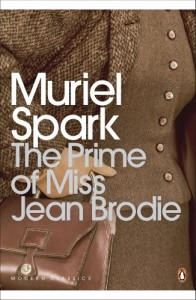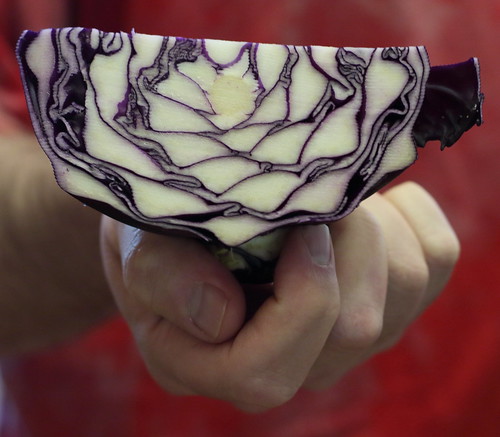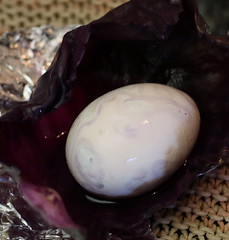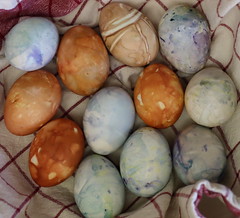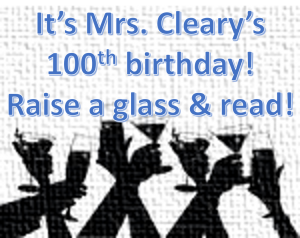One of the reasons I write mopey poetry is that it doesn’t usually come out unless something is bugging me — that’s why I’m trying, this month, to be more deliberate. Well, I was.
If you didn’t have time to listen to the whole nine and a half minutes of Act One of This American Life, the gist of the report is that there’s a new tradition borne of … well, basically, bullying and intimidation in the city of Philadelphia, that city of Brotherly Love. It’s …honestly, kind of crazy. From the transcript:
Upperclassman conspire to target freshman parties, freshman like Ben. And at these parties, the parents are home. The older kids, though, they are not deterred by parents. Parents can be yelling at them to get off their lawn, and the kids will pretend to go, but really they are sneaking in around back. And once they get in, they tell the younger kids, “this is our party now.”
This is so common in my town that parents are calling it “parasiting.” They try to deal with it themselves. They try not to call the cops. They don’t want their kids to be humiliated, but it can get overwhelming.
One mom I talked to got a call from a friend while this was going on at her house. The friend warned her, “they’ll find a way around you. You can’t stop them.”
Ben: It’s like a military raid. It’s like D-Day. It’s like any sort of multifaceted attack where the base is just completely up for grabs and anything goes. And all morals are just thrown out the window completely.
What bugged me tremendously about this story is that this meek thirteen year old freshman, inviting classmates to a birthday party, remembers blind panic and terror as the quiet gathering for ten or so kids was blown up to 70 strangers, and more vying for entry through windows, and crawling through the hedges. He remembers actual fear. His parents in the front yard, screaming, threatening, trying to get some control, on their own property.
And then, as an upperclassmen at sixteen, Ben began crashing parties. His excuses? Because, if he doesn’t go, it won’t change anything. And it changes nothing even if he does. If you can’t beat ’em, apparently, in Ben’s world, you join ’em. He says he has the “right” to go into strangers houses and ruin freshman kids’ parties. After all, if happened to him, right? He says it’s thrilling to do the kind of “black ops” thing and figure out ways to get into a house when people are trying desperately to keep you out. It’s so fun. It’s all part of the game.
This just does not compute.
I can’t imagine non-white kids getting away with this without being tasered, arrested, or brought home to Mom and Dad in body bags. I can’t imagine white parents not burning up the phone lines calling the police, the sheriff, the National Guard if brown kids were crawling under hedges and trying to get into their houses. I cannot imagine there being no use of lethal force, that parents would merely stand on the lawn and scold. Additionally, if we’re going to create a just and civil society, we must all understand its boundaries, and what they’re there for. We have, under the Constitution, the right to life, liberty, the pursuit of happiness. We never have the right to take away from anyone else – not their peace, not their happiness, not their feelings of safety in their homes. Parents telling each other that “you can’t stop them” is just, to me, unacceptable. Part of me looks very my metaphoric shoulder and rolls her eyes, “Oh, you’re overreacting, it’s a teen party,” but part of me knows that I am not. It would take just one incident of accidental injury – or God forbid, death – one act of misunderstanding or aggression across cultures or between genders or races, and someone’s life could be irrevocably changed. Maybe a teen. Or, maybe an adult would be liable… someone made a part of the game who hadn’t agreed to play.
The worst part of the story for me, and what has continued to trouble me, weeks later, was my instinctively violent reaction. Kid or no, I’d want to throw trespassers bodily from my home, my castle. How dare they! My hands practically twitched as I listened — No hand-wringing, no pleading for them to go away; I would take action. A healthy body fights off parasites, does it not? I would THROW THEM out. And not solely in rage. In terror. Wasn’t adulthood supposed to be about no longer being out of control? No longer being bullied? How is this… hang wringing passivity…adult? How did we get here?
…So for all of my high moral fiber and nonviolent ways, I have discovered that I am a lousy pacifist. Which is disheartening. Beliefs are supposed to be beliefs, even when you’re pushed.
Pounding Out Peace
Putting the “fist” back in “pacifist,” while
Abstaining from actual…peace, I’m
Confident conflict will war without end,
Ignominously fueling caprice…
Forgive me my flaws. Fully human
Impaired, my compassionate side;
Semantically, I’m on the side of the doves
Though I fear I’m…unqualified.
